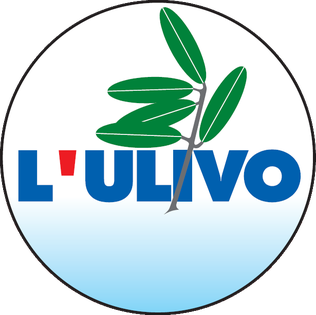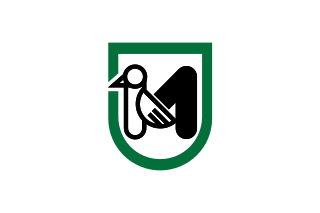 |
|---|
|
The Ligurian regional election of 1980 took place on 8 June 1980.

 |
|---|
|
The Ligurian regional election of 1980 took place on 8 June 1980.

The Italian Communist Party resulted the largest party, but lost some ground from five years before. After the election, Christian Democracy, the Italian Democratic Socialist Party, the Italian Liberal Party and the Italian Republican Party were able to form a government led by Republican Giovanni Persico (Organic centre-left), ousting the outgoing Communist-Socialist coalition government.
The Italian Socialist Party eventually joined the government in 1981 and Alberto Teardo, a Socialist, became President of the Region. Teardo was replaced by fellow Socialist Rinaldo Magnani, a centrist, in 1983.
 | ||||
| Party | votes | votes (%) | seats | |
|---|---|---|---|---|
| Italian Communist Party | 444,177 | 36.1 | 15 | |
| Christian Democracy | 377,955 | 30.7 | 13 | |
| Italian Socialist Party | 165,438 | 13.4 | 5 | |
| Italian Liberal Party | 55,885 | 4.5 | 2 | |
| Italian Democratic Socialist Party | 55,561 | 4.5 | 2 | |
| Italian Social Movement | 51,763 | 4.2 | 2 | |
| Italian Republican Party | 38,724 | 3.2 | 1 | |
| Proletarian Democracy | 13,919 | 1.1 | - | |
| Proletarian Unity Party | 11,858 | 1.0 | - | |
| Union of Pensioners and People Retiring | 10,891 | 0.9 | - | |
| New Coast | 4,197 | 0.3 | - | |
| Revolutionary Communist League | 881 | 0.1 | - | |
| Total | 1,231,249 | 100.0 | 40 | |
Source: Ministry of the Interior

Arnaldo Forlani, is an Italian former politician and statesman who served as the 43rd prime minister of Italy from 18 October 1980 to 28 June 1981. He also held the office of deputy prime minister, minister of Foreign Affairs and minister of Defence.

The Olive Tree was a denomination used for several successive centre-left political and electoral alliances of Italian political parties from 1995 to 2007.

The Italian Socialist Party was a socialist and later social-democratic political party in Italy, whose history stretched for longer than a century, making it one of the longest-living parties of the country.

The Democratic Party of the Left was a democratic socialist and social-democratic political party in Italy. Founded in February 1991 as the post-communist evolution of the Italian Communist Party, the party was the largest in the Alliance of Progressives and The Olive Tree coalitions. In February 1998, the party merged with minor parties to form Democrats of the Left.

Pietro Sandro Nenni was an Italian socialist politician, the national secretary of the Italian Socialist Party (PSI) and senator for life since 1970. He was a recipient of the Stalin Peace Prize in 1951. He was one of the founders of the Italian Republic and a central figure of the Italian political left from the 1920s to the 1960s.

The 1972 Italian general election was held in Italy on 7 May 1972. The Christian Democracy (DC) remained stable with around 38% of the votes, as did the Communist Party (PCI) which obtained the same 27% it had in 1968. The Socialist Party (PSI) continued in its decline, reducing to less than 10%. The largest increase in vote share was that of the post-fascist Italian Social Movement, which nearly doubled its votes from 4.5% to about 9%, after its leader Giorgio Almirante launched the formula of the National Right, proposing his party as the sole group of the Italian right wing. After a disappointing result of less than 2%, against the 4.5% of 1968, the Italian Socialist Party of Proletarian Unity was disbanded; a majority of its members joined the PCI.

The 1979 Italian general election was held in Italy on 3 June 1979. This election was called just a week before the European vote: the failure to hold the two elections at the same time caused much criticism for wasting public money.

The 1983 Italian general election was held in Italy on 26 June 1983. The Pentaparty formula, the governative alliance between five centrist parties, caused unexpected problems to Christian Democracy. The alliance was fixed and universal, extended both to the national government and to the local administrations. Considering that the election result did no longer depend on the strength of the DC, but the strength of the entire Pentapartito, centrist electors began to look at the Christian Democratic vote as not necessary to prevent a Communist success. Moreover, voting for one of the four minor parties of the alliance was seen as a form of moderate protest against the government without giving advantages to the PCI. Other minor effects of this election were a reduction of the referendarian Radical Party and the appearance of some regional forces.

The 1987 Italian general election was held in Italy on 14–15 June 1987. This election was the first Italian election in which the distance between the Christian Democrats and the Communists grew significantly instead of decreasing. Two parties that had not previously been in parliament won representation: the Greens with thirteen seats, and the Northern League with two.

The 1990 Calabrian regional election took place on 6 and 7 May 1990.

The Piedmontese regional election of 1980 took place on 8 June 1980.

The Piedmontese regional election of 1985 took place on 12 May 1985.

The Piedmontese regional election of 1990 took place on 6 and 7 May 1990.

The Marche regional election of 1980 took place on 8 June 1980.

The Sardinian regional election of 1979 took place on 17 June 1979.

The 1978 Friuli-Venezia Giulia regional election took place on 25 June 1978.

The Left in France was represented at the beginning of the 20th century by two main political parties, namely the Republican, Radical and Radical-Socialist Party and the French Section of the Workers' International (SFIO), created in 1905 as a merger of various Marxist parties.
The Pentapartito, commonly shortened to CAF, refers to the coalition government of five Italian political parties that formed between June 1981 and April 1991. The coalition comprised the Christian Democracy (DC), the Italian Socialist Party (PSI), Italian Democratic Socialist Party (PSDI), Italian Liberal Party (PLI) and Italian Republican Party (PRI).
The centre-left coalition is an alliance of political parties in Italy active, under several forms and names, since 1995 when The Olive Tree was formed under the leadership of Romano Prodi. The centre-left coalition has ruled the country for more than 15 years between 1996 and 2022.